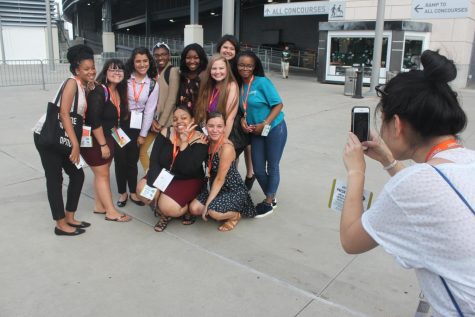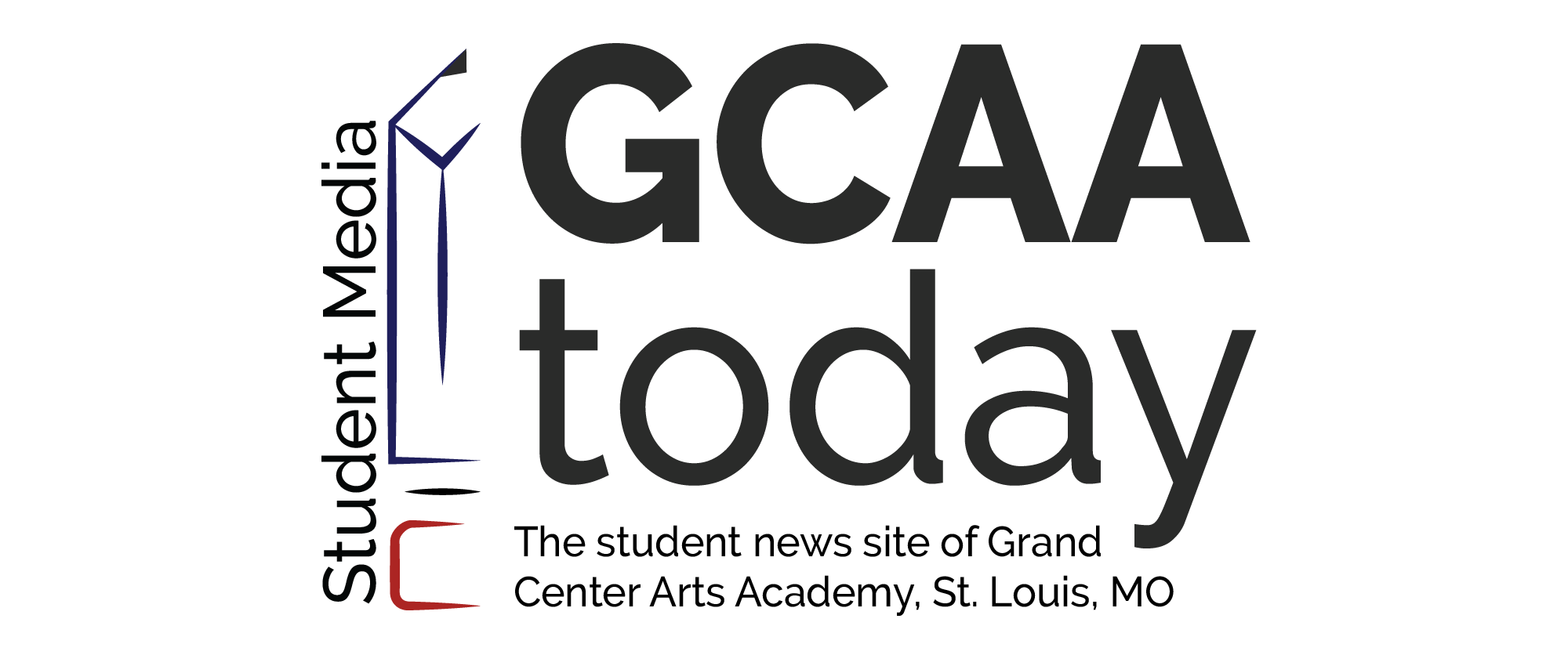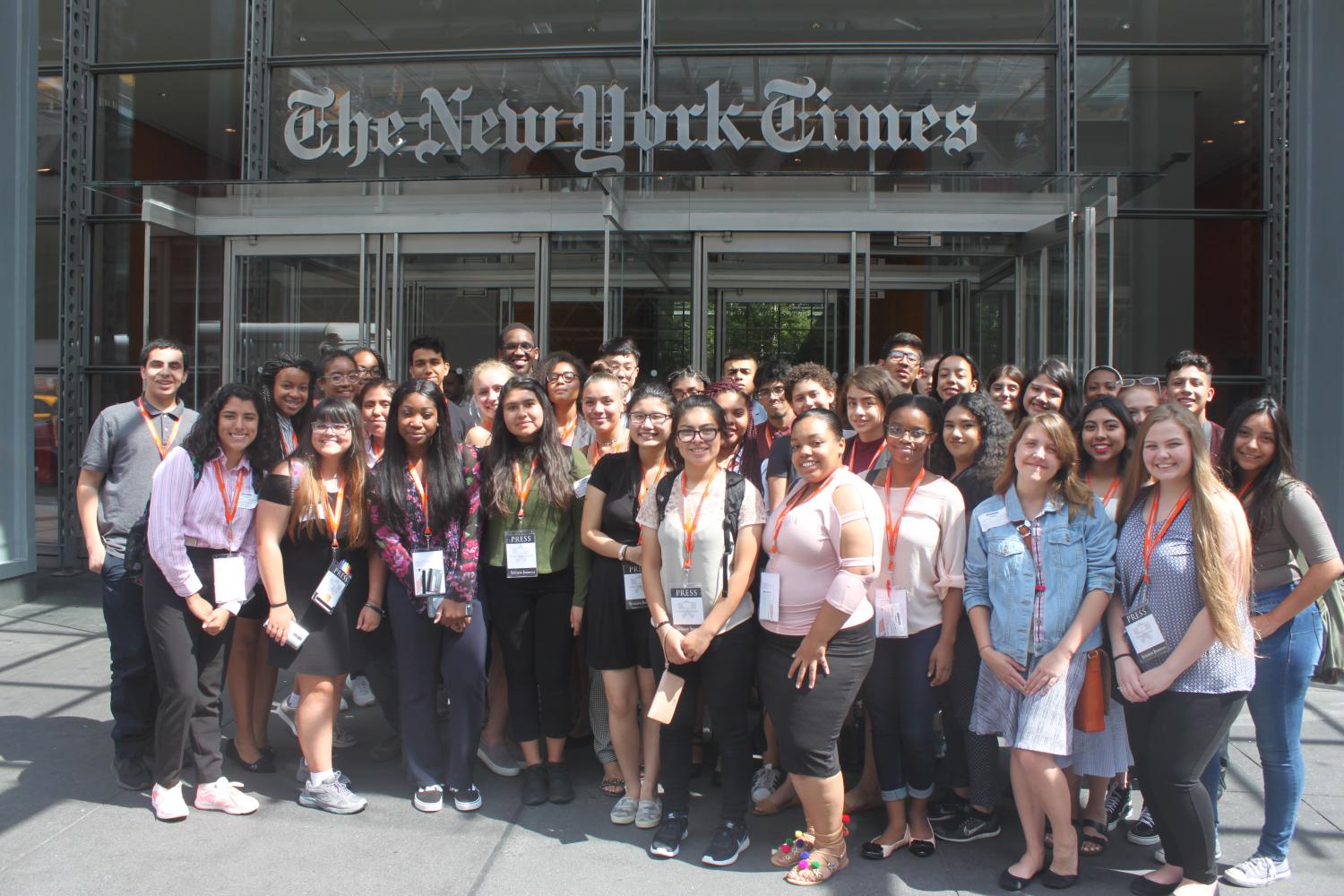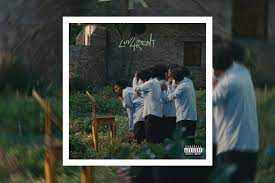Princeton Summer Journalism Program sheds light on diversity in the newsroom, offers opportunities for aspiring journalists
The Princeton Summer Journalism class of 2017 poses for a group photo outside of The New York Times headquarters. Students had the opportunity to tour the building, as well as ask reporters about their experience in the field.
“The program’s goal is to diversify newsrooms by encouraging outstanding students from low-income backgrounds to pursue careers in journalism,” states the Princeton University Summer Journalism Program website. This claim certainly gives a glimmer of hope to aspiring high school journalists looking for an outlet in which they can truly uplift other voices. In some cases, this was the first time most could.
When I was interviewed by founder/executive director, Richard Just (who is also the editor of The Washington Post) back in April, he cautioned me that if I were to be accepted, I would be in for ten long days of intense work. Little did I know I was in for approximately sixteen hours of work each day consisting of workshops, lectures, discussions, reading, writing, and reporting.
After an exhausting day of travel from St. Louis to Liberty International Airport, there was more travel ahead. It was my first time taking a train, so I was taken by surprised when it rushed past, shaking the platforms and screeching the tracks. When the delayed train finally arrived, a group of approximately ten students and one counselor boarded. Even though it was double decker, it was very cramped and chaotic. After a short ride, we got on a shuttle bus, which took us to the university.
We arrived at the front of the campus with a full view of architecturally advanced buildings and large green lawns. Once we entered the dorm, we received our press badges, folders, and an official Princeton water bottle. Moving into our rooms was such a relief after many modes of transportation and the constant thought of what was coming next.

Hang Ying, a high school journalist from Madison, Wisconsin, takes a picture of a group of Summer Journalism Program students. Moments later, students began to cover the Jets VS. Titans football game from the press box at Metlife Stadium in New York.
Students settled in, however it was time to go to Friend, [the engineering building where] we had all of our classes.
As we sat in the large auditorium, we were timid and looked around at thirty-nine unfamiliar faces. Each person stood up and introduced themselves. Students from Wisconsin, California, New York, Texas, Illinois, Washington, Mississippi, West Virginia, New Mexico,Michigan, and Missouri were represented .
As we each talked about our school publications, I was astonished by the fact that many students did not have any outlet for journalism. Before realizing this, I thought it was a normal class that would be offered in almost every high school across the country. Many students do not even have access to equipt technology at their school.
This experience with new students opened my eyes. It surprised me when students expressed their frustration that they do not have the opportunity to use their voice to reach an audience.
At this point in the day, I had been awake for fourteen hours. I was physically and mentally exhausted, however hearing this woke me up. I was so intrigued by the fact that many students want so badly to tell a story, but they do not have the outlets to do so.
As the days went on, conversations and debates were increasingly intense and carefully developed. Hearing what other students had to say about their communities, background, current events, and the world as a whole engaged me in a way that encouraged me to understand different perspectives even more. Networking was a significant aspect yet building relationships is what tied the program together.
Many students expressed how grateful they were to be accepted into this program program not only because it will show their academic dedication, but they were finally able to engage in journalism in the real world, working hands-on with real reporters. The final product we created was a newspaper called The Princeton Summer Journal, which can be found at https://princetonsummerjournal.com/2017/08/16/887/.
Diversity was a crucial aspect in the creation of the program and remained a consistent theme throughout the course of ten days. We were able to create journalism which was not censored or limited as this happened to many students at their high schools. On August 14th, we left with new found knowledge, lifelong friends and mentors, and confidence in the voice we have.
Your donation will support the student journalists of Grand Center Arts Academy. Your contribution will allow us to purchase equipment and cover our annual website hosting costs.





